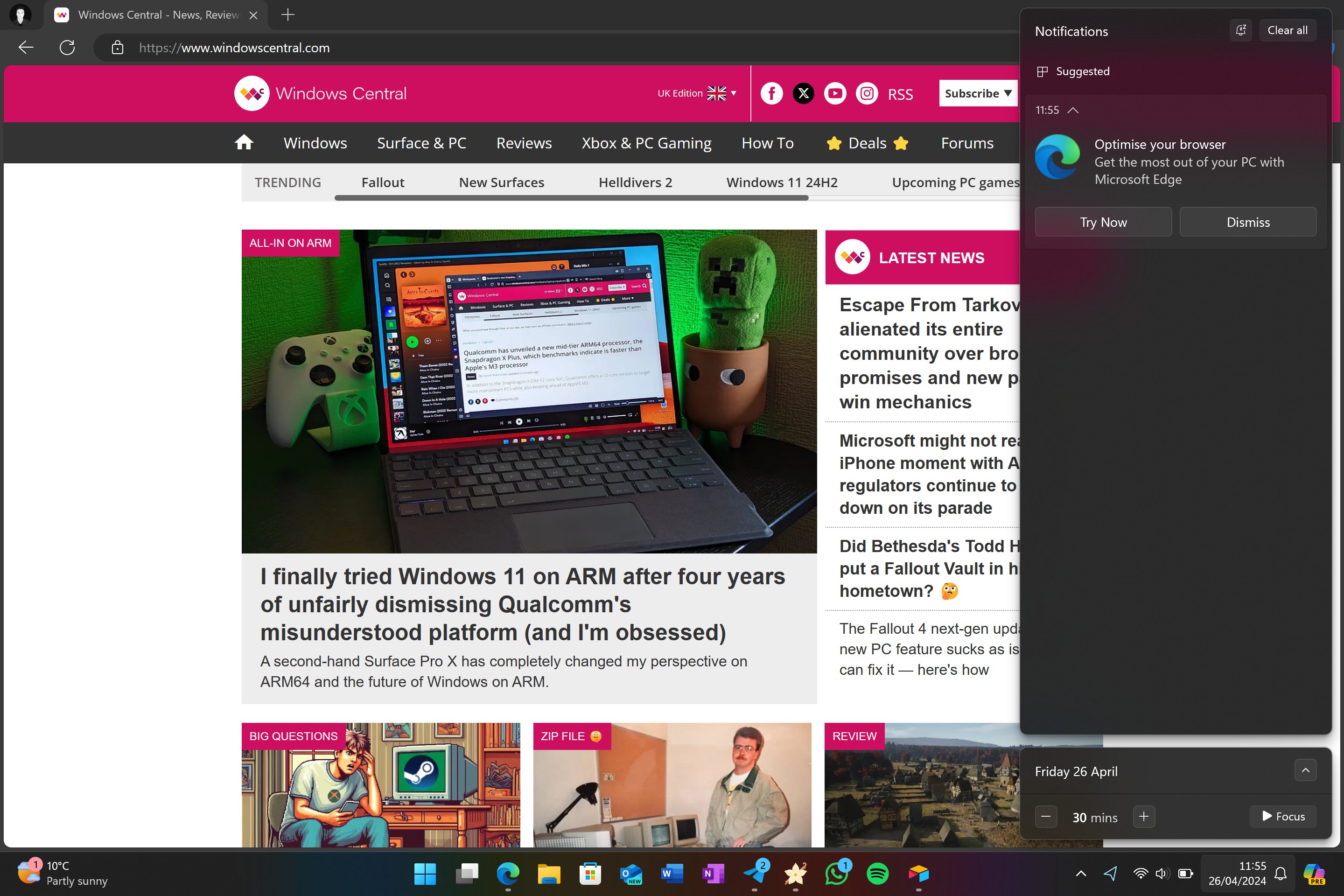Microsoft has announced changes coming soon to Windows 10 and Windows 11 that are designed to ensure the OS is in compliance with the Digital Markets Act (DMA) for users in the European Economic Area (EEA.) The changes will reduce Windows‘ insistence on using first-party apps and services.
One of the big changes coming with these EEA updates include Windows no longer nagging users to set Microsoft Edge as their default browser. Currently, Windows will periodically pop a notification asking the user to set Edge as their default browser, even when Edge isn’t running.
Going forward, Windows will no longer do this. It will only prompt the user to set Edge as the default browser when Edge is opened. Additionally, setting a third-party browser as default will also set it as default for more link and file types, as well as pin it to the Taskbar automatically.

Third-party search providers will now also be enabled automatically when installed. Previously, the user would have to manually go into Windows Search settings to enable the third-party search provider after installation, but that’s now no longer the case.
Users in the EEA will also be able to uninstall the Microsoft Store app, something that isn’t currently possible as it’s treated as a system app. Microsoft says that even when the Microsoft Store app is uninstalled, apps will continue to be updated in the background, likely through Windows Update.
Here are a few more changes coming to Windows 10 and Windows 11 in EEA markets:
- The Microsoft Bing app, which is a provider of web search experiences in Windows Search, now opens web content with the default browser in the EEA. This change is already available in Windows Insider builds and will finish rolling out to retail on Windows 10 and Windows 11 in early June.
- The Start Experiences app, which is a provider of widget and feed experiences in the Widgets Board and Lock Screen, now opens web content with the default browser in the EEA. This change will start rolling out in June to Windows 11. On Windows 10 there is no Widgets Board, instead, any application can create a dockable window on the Taskbar using desk bands. Microsoft Edge uses this capability for its News & Interests feature, which isn’t changing – it will continue opening web content directly.
- When Microsoft Edge is uninstalled, other Microsoft apps won’t prompt you to reinstall it in the EEA (excluding PWAs distributed in the Microsoft Store using Microsoft Edge technology). A few apps are still being updated with this change and will start rolling out in June to Windows 10 and Windows 11.
Many of the changes are rolling out in preview now for Insiders, and will be made generally available in the coming weeks and months.
These changes are the latest designed for EEA markets. The company first began making Windows 10 and Windows 11 DMA compliant in 2023, where it first allowed users to uninstall Microsoft Edge and disable many ads across the OS.












